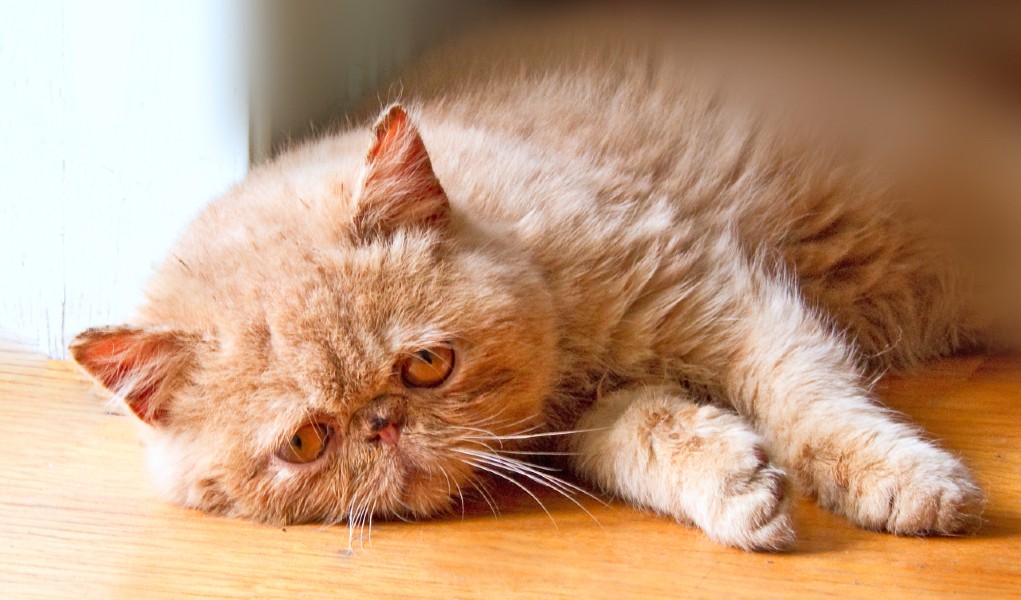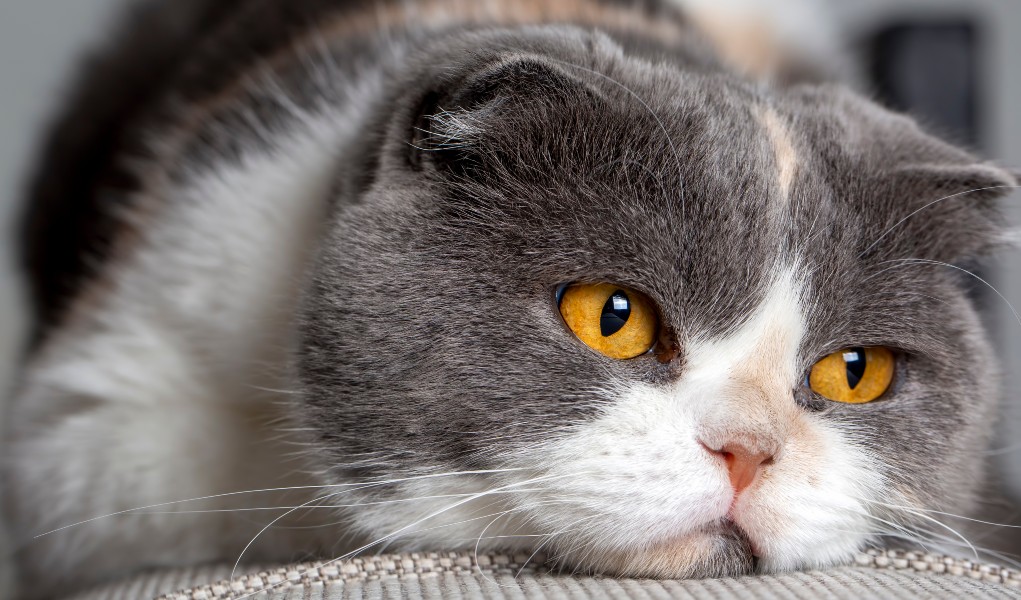Did you know that cats can suffer from depression just like humans? Feline depression reduces a cat’s quality of life and limits his ability to enjoy his days. Know how to tell if your cat is depressed is important for every owner. Many health issues may look like depression, but the symptoms could actually be the sign of another health problem.
We all know what chronic pain or an illness can do to us. It isn’t much different for cats. A condition that causes constant, chronic, or movement-related pain can look much like depression. So, what are the symptoms of feline depression?
I know what you're thinking, cats are moody creatures by nature. How can you tell if your cat is depressed or suffering with an underlying health condition? How will you know if it's time to call the vet? I'll explain all of that and more in this guide on feline depression.
How To Tell If Your Cat Is Depressed
and what to do about it?
 Cats are sensitive creatures by nature. Like humans, some cats are more sensitive than others. Cats CAN become depressed, just like their humans.
Cats are sensitive creatures by nature. Like humans, some cats are more sensitive than others. Cats CAN become depressed, just like their humans.
Your pet can be affected by changes in his routine or environment. Losing a family member, moving to a new home, a change to the family’s normal routine or health problems could all lead to depression in cats.
As I mentioned, some cats are more sensitive than others. For this reason, some cats will have very obvious behavior changes when struggling with depression. Other cats may try to hide their struggle.
Signs that you should be looking for if you’re concerned that your cat may be depressed include:
- Lethargy (more than normal)
- Increased time sleeping
- Loss of interest in playing with toys, socializing with humans or other animals in the house, grooming, going outside (if allowed), or any other “typical behavior”
- Increased vocalization (if normally quiet) or decreased vocalization (if normally vocal)
- Not consistently using the litter box
These could all be signs of an underlying healthy condition, so it would be best to schedule a check-up with your veterinarian. If there has been a recent change in the cat's routine or environment, it's probably a case of depression. But, it's always better to be safe than sorry.
What to do if you think your cat is depressed?
There are a number of things that you can do to help a depressed cat. For starters, spend more time with him. You don't have to force your attention on him. You don't even need to touch him if he doesn't want you to. Just be near your cat. Hang out in the same room as him and watch television or read a book.
Try to introduce new toys or play some interactive games. Catnip may help entice your kitty companion to play. Rotate the toys and games to ensure your cat doesn’t get bored. You can also offer new food or treats that may entice your cat.
Did you know that there is music specifically designed to calm cats? This music can be played softly in the background to help your cat relax. Check out some YouTube videos from Relax My Cat that offer soothing music for cats. This can be especially beneficial if your cat is alone for long periods of time during the day.
You could also try feline pheromones, which are specifically formulated to calm cats. There are sprays, diffusers and pheromone collars available, depending on which will meet your needs. Some of the most common commercial feline pheromone products can be found on Amazon.
If all else fails, you could consider getting another cat. This may be the best option if your cat has recently lost a member of the family. Just be sure to test this theory first. If you have friends or family who have a cat, ask to borrow their kitty for a weekend. Your cat will probably be a little standoffish at first, but you'll know soon enough if he would warm up to a new furry friend.
READ NEXT: How Long Can You Leave A Cat Alone?













